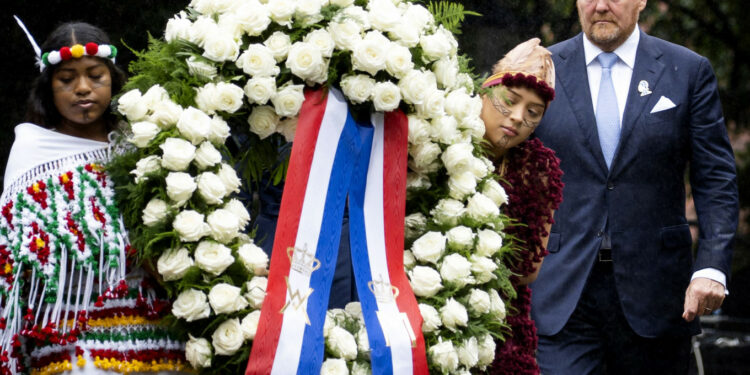s the Netherlands marks on Monday 161 years since the abolition of slavery, activists have questioned the sincerity of recent apologies by Dutch authorities given they have not addressed the politically thorny issue of reparations.
In December 2022, then-Prime Minister Mark Rutte acknowledged that the Netherlands bore a responsibility for transatlantic slavery and had profited from it, and apologised.
Dutch King Willem-Alexander also apologised last July for his country’s involvement and the effects it still has today.
But the government has ruled out reparations, instead setting up a 200 million euro fund to promote social initiatives in the Netherlands, the Dutch Caribbean and Suriname.
The Dutch government said in a statement on Friday that the fund would benefit descendants of enslaved people and other groups, with the goal of countering “the harmful effects of the past in the present”.
The idea of paying reparations or making other amends for transatlantic slavery has a long history and remains deeply disputed, but has been gaining momentum worldwide. Opponents say countries should not be held responsible for historical wrongs.
Barryl Biekman, an activist who for decades has been at the forefront of the movement calling for reparations in the Netherlands, said apologies must be followed by concrete measures to address issues affecting Black people.
“They apologised but they don’t want to look at the systems that keep us down,” Biekman said, pointing to persistent disparities in the labour market, education and health.
Linda Nooitmeer, chair of the National Institute for the Study of Dutch Slavery and its Legacy (NiNsee), said the official Dutch apologies appeared sincere but said the aftermath had been bittersweet.
“Sweet because the silence surrounding the history of slavery and the Netherlands has been completely broken… but(NiNSee) does feel the need for specific economic policies,” Nooitmeer said.
“A consequence of the history of slavery is the exploitation people with African roots experience,” she added.
The slavery reparations commission for the Caribbean Community, CARICOM, has drawn up a 10-point reparation plan that calls for debt cancellation and investment to tackle public health crises.
Opponents of reparations have long argued it would be too complex to identify parties responsible for historical slavery and to determine remedies. Some say discussions of the issue could also trigger greater political polarisation in countries – including the Netherlands – where the far-right is on the rise.
Biekman called for the establishment of a truth commission to look into reparations.
The Kingdom of the Netherlands still comprises several Caribbean islands, including Aruba and Sint Maarten.
Rhoda Arrindell, an advocate for the independence of Sint Maarten, said the apologies were “incomplete” if the islands remained part of the kingdom and the Dutch did not repair the economic underdevelopment caused by colonialism.
She said the new Dutch fund should be a “downpayment on a bigger reparation bill”.
“How could you think that you commit the crime, acknowledge the crime (by apologising) and then decide what the punishment will be?” Arrindell said. “We find that rather appalling.”
Source link : https://www.thejakartapost.com/world/2024/07/01/advocates-for-reparations-say-dutch-slavery-apologies-not-enough.html
Author :
Publish date : 2024-07-01 10:25:27
Copyright for syndicated content belongs to the linked Source.



